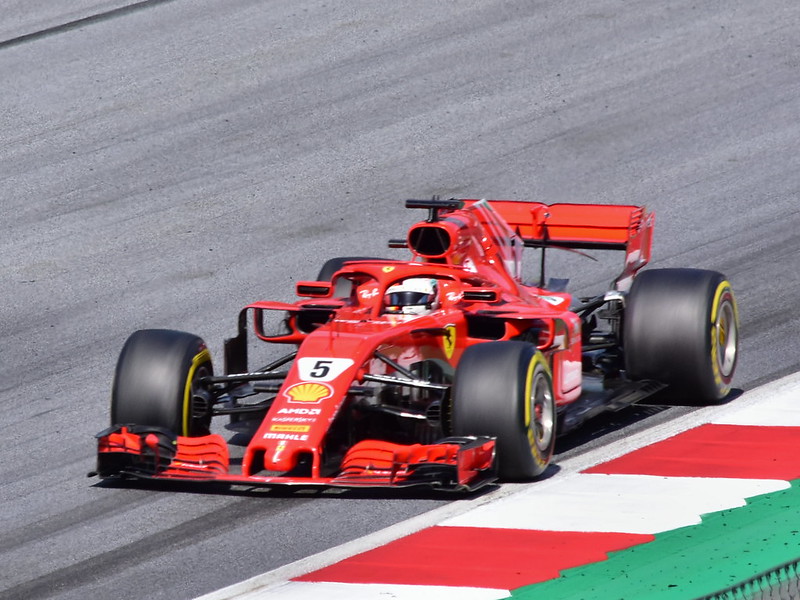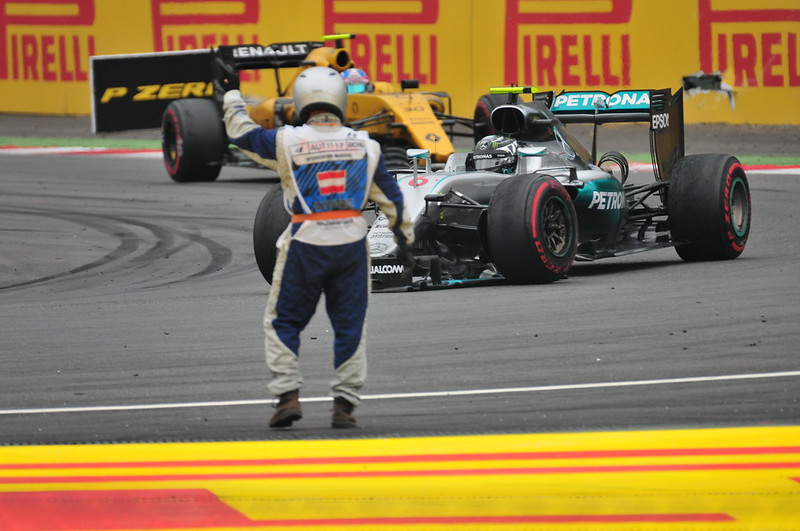10883Views 0Comments

Changes In The Racing Game Should Be Welcomed In The Near Future
Whether you are a longtime fan of the sport or just recently got in on the hype, it is safe to say that Formula One is an enthralling spectacle to watch. Many of us dreamt of winning in Formula One during our childhood years. Thankfully, now there are video games for that, as well as places such as the pubg betting to place bets. Nowadays, winning can be done without the ordeal of becoming a professional driver and risking your life on the track.
However, it is not every day that one gets to see machines worth millions chasing around the track at dizzying speeds. The sport demands finesse, professionalism, and cold nerves. To some, it could seem that seeing cars go in laps can get pretty repetitive. While hard-core Formula 1 fans will disagree, it looks like there is a kernel of truth in the notion. Else, why would have Formula 1 bosses risked shuffling the deck by adding new ideas? Last year the sports league took an experimental approach and added something new and exciting to the racing game – sprint races.
The New Race Mode That Split the Crowd
Sprint races require the cars to line up in a rigid grid, and the order in which the cars are placed does not necessarily go from fastest to slowest. This made for an added element of unpredictability to crown the main event on a prime night. From a strategic point of view, Formula 1’s modern approach is a welcome change of pace in the sport. The sprint model surely added some spice to what has become a traditional, perhaps even conservative sport. The change aimed to give fans a new, awe-inspiring event, but it was also meant to win over the people who were on the fence about long races. A whole new model that is based on unpredictability is bound to entice thrill-seekers and raise the overall view count. In some ways, this was at the cost of keeping several of the F1 teams happy. The new dash races were met with strong opposition by some Formula One drivers.
Unpredictability surely played a big role in 2020. No one could have foreseen a global lockdown happening and changing everyday life drastically. It impacted the Formula One World Championship greatly. On Sunday, July the 5th, the Austrian Grand Prix was meant to happen. Precisely, the 11th round of 22 overall. Due to the mass restrictions, it ended up being only the start of the Formula One season. The season started out with an undetermined number of total races, barely any spectators, and skeleton crews. Each Formula One team was allowed to have only 60 personnel onsite. This made for a big logistic challenge that needed to be overcome by cutting corners. Thankfully, the season picked up after that, albeit with minimal resources and a host of restrictions. 2020 was far from normal, but the season turned out to be exciting nonetheless.

Changed Regulations in 2021
In 2021, a whole set of new restrictive rules for the upcoming season was announced, and that is bound to introduce some new winds. Originally Formula 1 intended to launch a significant overhaul regarding the technical regulations, which were under discussion for several years prior. However, due to the global pandemic, this was postponed to 2022 as a cost-saving measure. That is not to say that there were no significant changes. A new ‘budget cap’ was announced, allowing teams a maximum spending limit of $145 million. That is meant to encourage the racing sport to be more about innovation within bounds, and driving skill, as opposed to relying heavily on investments. Additionally, F1 is working on re-modeling the aesthetic of the Formula One cars. In their opinion, the designs need an update. The league wants them to be visually striking and something that a teenager would want to have on their wall. If they are out to make the cars look even better, that is fantastic in our books!
Experimentation is Necessary to Resolve F1’s Imbalances
In 2020 there has also been some experimentation with new racing schedules, particularly as they applied to the Grand Prix weekends. According to the boss of the Haas team, Gunther Steiner, it was a welcome change. However, he thinks that there needs to be more experimentation to tackle the main problems that persist in the F1 sport. In his opinion, one of the main gripes that the drivers have is that they can not all race together at once. On top of that, there is a huge gap between the top three and the lowest three teams. Everyone is working on ideas for solving these issues, but it involves a lot of work and re-thinking. He said that even the new 2021 regulations will not succeed in solving all issues. The only way a solution can be found is with more experiments aimed to determine the right budget cap that suits the big and small teams alike. All this has to be achieved while keeping promoters, teams, drivers, and fans happy. It is not quite simple to do, but trial and error are required.
Concerning reversed-grid qualifying races, Steiner said that he does not feel the need for them. However, he respects the decision of the Formula 1 bosses. According to him, such innovations are good if it helps the sport, as well as the overall promotion of the events. Things have to be tried out to see whether the drivers, fans, and the F1 find it beneficial. However, Steiner also added that it is paramount that the Formula 1 bosses are brave enough to admit when things such as sprint races do not work out.
Conclusion
All in all, some say that the 2020 season was akin to a write-off due to the massive enforced restrictions. That was the perfect time to introduce new experimental approaches to the racing game. Some loved the changes, others did not. One thing is for sure, it kept things fresh. New ideas are healthy for the Formula 1 sport, as they are the only way to resolve the current imbalances, as well as aim to bring in more viewers and keep the old fans excited. Surely, money plays a big part in Formula 1, but it can get in the way of things. Overall, true fans are just excited to see who the best Formula One driver is, year after year. The new budget cap may help to even things out. We are excited to see what the 2021 season will bring with all its new regulations, and hopefully, new exciting ideas. What do you think about the upcoming changes? Who’s Formula One career have you been following lately? We would love to hear your thoughts!

